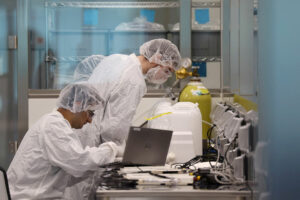THE PHILIPPINES will need to establish testing laboratories and reform its policies to boost domestic manufacturing of pharmaceuticals, the Board of Investments (BoI) said.
In a statement, the BoI said it participated in a US Agency for International Development (USAID) program studying the pharmaceutical ecosystem.
The BoI, USAID, other National Government agencies, and the private sector are collaborating in the Promoting the Quality of Medicines Plus (PQM+) Program to identify industry shortcomings.
“We believe that with the right support, the pharmaceutical industry of the Philippines will flourish,” PQM+ Asia Region Director Mehmood Anwar said.
He added that the “establishment of a testing laboratory is crucial for priority essential medicines in the public and private sectors.”
Under this collaboration, scoping meetings were conducted to understand the local pharmaceutical industry’s capabilities and challenges.
According to the BoI, Mr. Anwar said that consultations with stakeholders revealed the need to prioritize tuberculosis treatments.
“Despite the sizeable domestic market for tuberculosis medicines, there is limited local manufacturing of tuberculosis products,” the BoI, citing Mr. Anwar, said.
“He also underscored that policy coherence is key to an effective policy framework that increases local manufacturing of pharmaceutical products,” it added.
BoI Industry Development Services Executive Director Ma. Corazon Halili-Dichosa said that the PQM+ Program supports the government’s efforts in making medicines available and ensuring that they meet international standards.
“The Philippine market is relatively a big market that domestic industry should be able to serve,” Ms. Halili-Dichosa said.
In 2023, the Philippine pharmaceutical market generated $2.1 billion in revenue and is estimated to remain at around $2 billion this year, with an annual growth rate of 2.4% to $2.33 billion by 2029.
“The market has largely been served by imports, primarily from the US, India, China, and Germany, which exposes the country to global supply chain vulnerabilities, as highlighted during the COVID-19 pandemic,” she said.
In 2023, the Philippines imported $2.35 billion worth of pharmaceutical products. — Justine Irish D. Tabile

